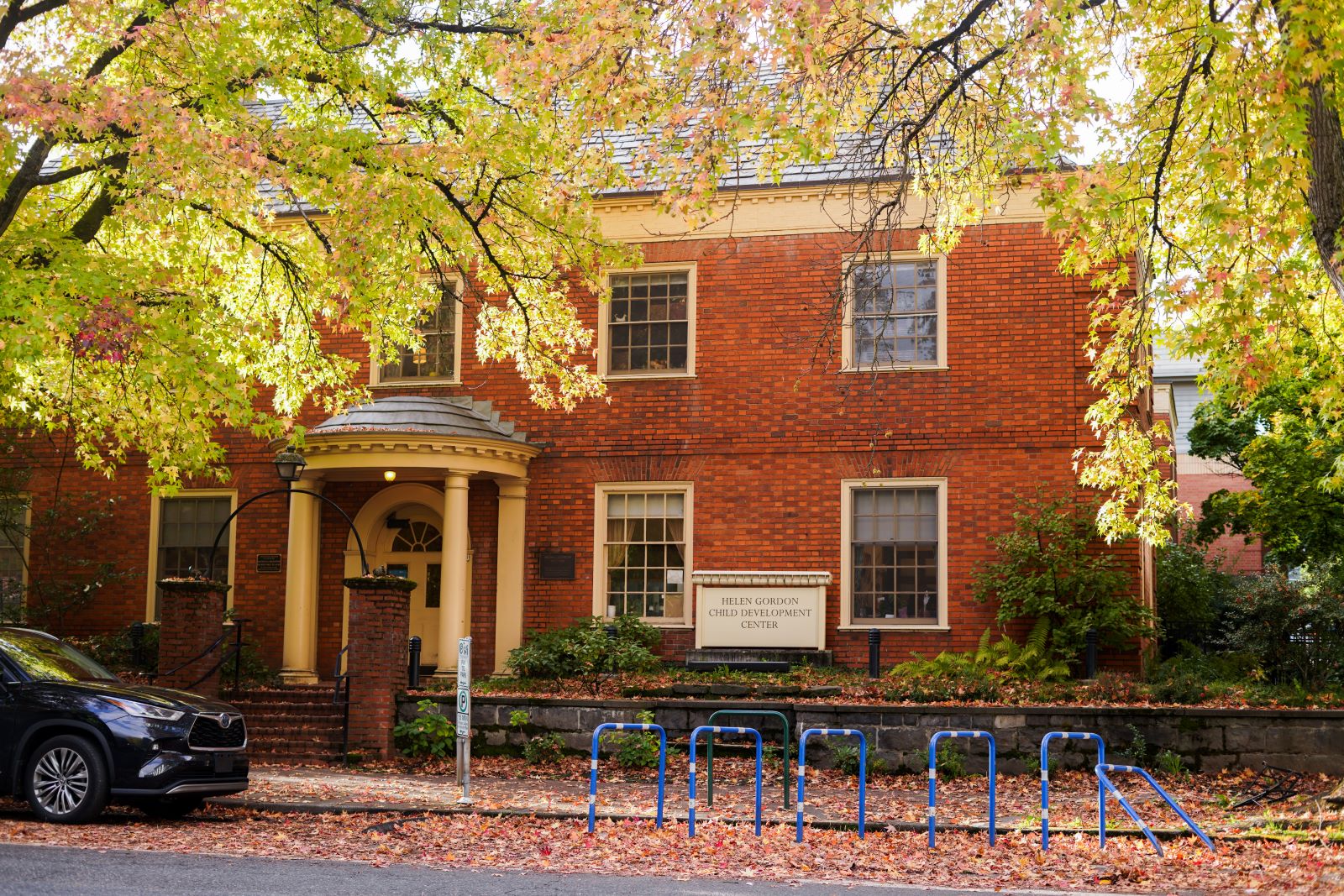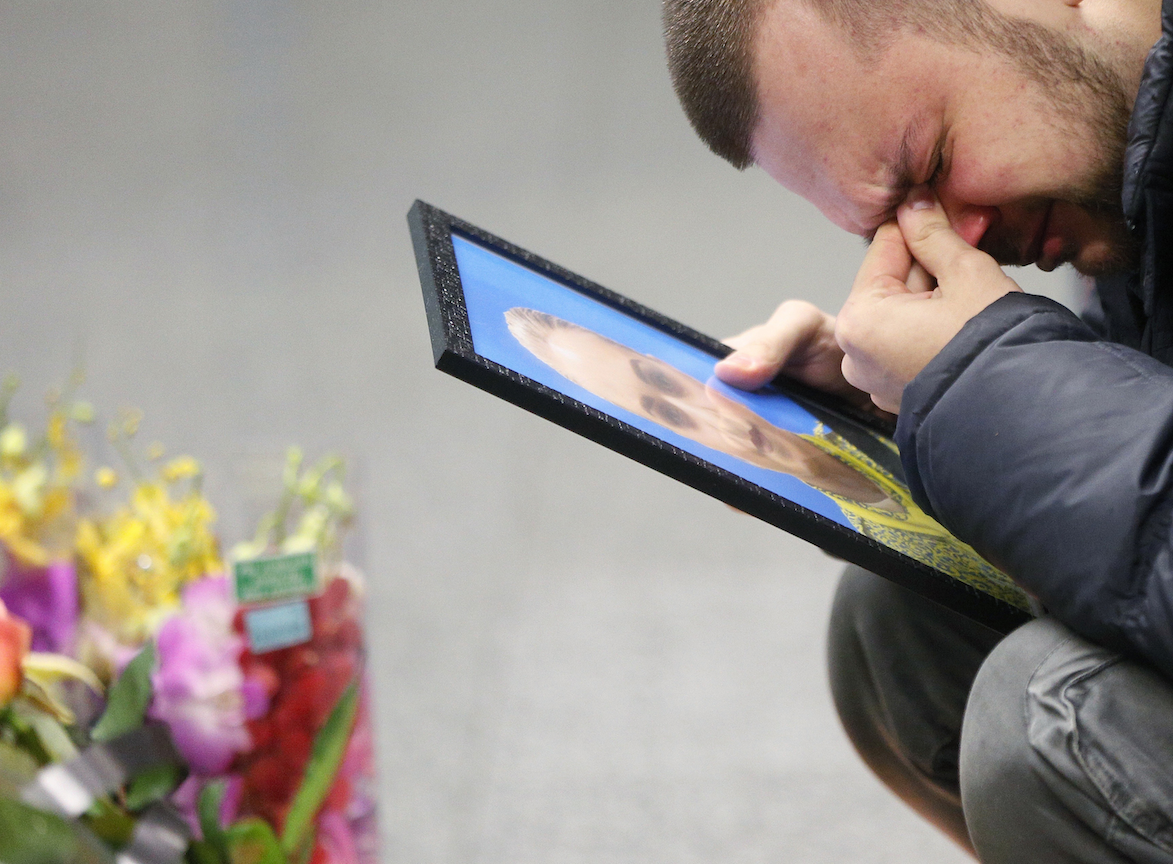Two campus women sue former player, University of Washington
Two women sued the University of Washington and a former Husky football player Friday; alleging they were sexually assaulted by the player. The lawsuit accused the university of fostering a “fertile environment” that allowed repeated sexual misconduct by football players.
The women were the third and fourth to bring suits in the past year alleging sexual assaults by UW football players.
The new suit alleges that former UW player Roc Alexander sexually assaulted a former equipment manager for the football team and a sophomore he met outside a party in 2001.
Former UW football coach Rick Neuheisel said through a spokesman Friday night that he was told by then-athletic director Barbara Hedges that senior associate athletic director Marie Tuite “was to handle the situation with Roc Alexander and [he] was to stay out of it.” As far as Neuheisel understood, the spokesman said, “no one was ever charged, and Tuite was to handle it.”
Hedges and Tuite could not be reached Friday night.
The equipment manager was identified in the suit only by her initials. The other woman, Pearl Leung, is allowing her name to be used. Both are in their early 20s.
The former equipment manager contends that when she told Tuite and another UW official she had been assaulted, they shunted her to a university mediator who gave her little credence and lightly punished Alexander.
UW interim athletic director Dick Thompson said last night he was aware of complaints against Alexander.
“We certainly aren’t going to condone anything that is inappropriate, but since I don’t know all the facts, I don’t want to make judgments one way or the other,” said Thompson, who recently replaced Hedges.
Thompson said coaches evaluate recruits to make sure they’ll be good citizens. “For the most part, it appears to me we do a good job … We do occasionally have instances of problematic behavior.”
No criminal charges have been brought against Alexander, 22, who also couldn’t be reached for comment last night. A man who answered Alexander’s telephone said Alexander had not returned from Indianapolis, where he was being tested by teams preparing for April’s National Football League draft.
Yesterday’s lawsuit comes as the UW faces NCAA allegations that a lack of institutional control led to gambling violations by Neuheisel and other athletic-department employees. The department is also the subject of an internal inquiry into the drug-dispensing practices of a former UW team doctor.
Neuheisel, who became UW football coach in 1999, was fired last summer for betting in high-stakes college basketball tournament pools and then lying about it to NCAA investigators.
The four allegations are similar to those against football players and recruits in a widening scandal at the University of Colorado, where Neuheisel served as football coach for the 1995 to 1998 seasons.
Three women recently filed lawsuits against Colorado, alleging they were raped and that the university fostered a climate that contributed to the assaults and violated the women’s civil rights. An earlier case at Colorado allegedly occurred while Neuheisel was head coach.
The suit filed yesterday against Alexander and the UW also alleges civil-rights violations, and contends the UW negligently recruited and supervised Alexander.
Rebecca Roe, a Seattle attorney for the two women, said yesterday that Neuheisel allowed a “permissive atmosphere” regarding sexual misconduct.
The earlier suits against former UW players, also filed by Roe, were brought against Jerramy Stevens, now a Seattle Seahawks tight end, and Eric Shyne, who left school last spring – reportedly for academic reasons – without ever playing in a game for the Huskies. Both of those cases are pending.
Stevens is accused of sexually assaulting a woman in June 2000, which he has denied. No criminal charges were filed against him or Shyne, who also has disputed the allegations against him, from May 2002.
Roe said the UW’s and Neuheisel’s failure to take action against Stevens “gave the green light” to other football players, sending a message that sexual assaults would be tolerated.
Alexander, a native of Colorado Springs, Colo., started 14 games during his UW career, including five last season. He was bothered by injuries the past two seasons. Alexander is considered a borderline professional football prospect, with a chance to get drafted in the lower rounds of the seven-round NFL draft.
Alexander is enrolled at UW, though he is not taking classes this quarter while preparing for the draft.
He pleaded guilty to a misdemeanor assault charge last summer in Chelan, according to court records. Details of that case were not available last night.
In the suit filed yesterday, the former equipment manager alleges Alexander had “sexual contact” with her on several occasions between December 2000 and April 2001, including instances where Alexander “used intimidation to facilitate the sexual contact.”
During a “final incident” in late winter or early spring of 2001, Alexander pressed his way into the woman’s dorm room, pinned her against the wall and sexually assaulted her, the suit says.
The woman “felt she had no option but to go along with his actions given his physical size and his aggressive acts toward her in the past,” the suit contends.
In fall 2001, the woman reported Alexander to UW athletic-department officials and was advised to participate in UW-sponsored mediation, according to the suit.
In a tort claim against the UW, which is required before a lawsuit can be filed, the woman said she reported her allegation to Pete Kaligis, a team strength coach, and later to associate athletic directors Dave Burton and Tuite.
“Athletic Department officials encouraged (the woman) to participate in mediation,” which was conducted by Lois Price-Spratlen, the university’s ombudsman for sexual harassment, the claim said.
“The mediation process was negligently planned and executed and involved no support for (the woman) and insignificant consequences for Alexander,” the tort claim said.
Price-Spratlen, reached last night, said mediation is confidential and she could not comment.
Roe said she believes Alexander was required to perform a short amount of community service. She said UW officials weren’t required to report the matter to law-enforcement officials because the woman was not a minor. But the officials could have reported the incident to the UW’s sexual-violence center, Roe said.
In a deposition this week in one of the other lawsuits against a UW player, Tuite professed to be unaware of studies that show student athletes commit a disproportionate number of sexual assaults on college campuses, Roe said. Yesterday’s lawsuit accuses the university of negligence for supposedly being unaware of the pattern.
In the other case, Leung said that she met Alexander at a party near the UW campus and that they walked back to their dormitories together. The two went to a dorm room, but only after Alexander assured her that nothing sexual would happen, according to the suit.
Alexander then forced himself on Leung, the suit alleges.
Neither woman formally pressed charges with police, although one spoke to a King County prosecutor some time later, Roe said. It is unclear what happened after that meeting, Roe said.
It took a while for both women to fully grasp what had happened to them and decide to file a lawsuit, Roe said.
The two women don’t know each other, have never met, and haven’t talked about their experiences with Alexander, according to their suit.
The suit seeks unspecified damages. In the tort claims, Leung asks for $2 million in damages and the other woman asks for $1 million.
The tort claims were filed late last year, before the Colorado scandal erupted.
In Colorado, seven women have reported they were raped by players or recruits, in some cases during or after football drinking parties.
Colorado’s Board of Regents has formed an independent commission to examine problems dating to 1997, when the first rape allegation against a football player surfaced while Neuheisel was head coach. Among the issues the commission will examine: whether sex and alcohol were used as recruiting tools to lure top high-school football players to attend the school.
Investigators plan to question Neuheisel and other former coaches as well as former and current players, recruits and students, said commission spokesman Evan Dreyer.
Gov. Bill Owens appointed Colorado’s attorney general yesterday as a special prosecutor who will investigate the recruiting scandal.
The NCAA, in response to reports of sexual misconduct in college football programs, has formed a task force to study recruiting practices at colleges and universities and to develop tougher standards on recruiting.
“Some of what has been alleged is morally reprehensible and has no place in college sports,” NCAA President Myles Brand said.



